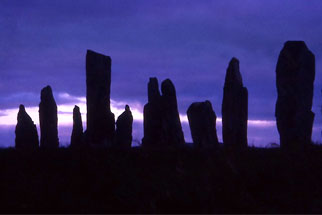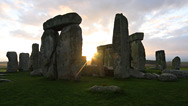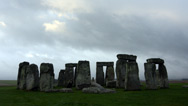Europe's Mysterious Megaliths
- By Evan Hadingham
- Posted 10.21.10
- NOVA
NOVA's "Secrets of Stonehenge" presents exciting new
archeological evidence about the building and purpose of the
world's most famous stone monument, leading to a provocative
theory that it was involved in a cult of ancestor worship. But
Stonehenge was only one of around 900 stone circles in the
British Isles dating to the Neolithic period about 5,000 years
ago, so much remains to be discovered. Outside Britain, circles
are rare, but other distinctive traditions of prehistoric
ceremonial sites built with large stones—or
megaliths—flourished.
 Launch Interactive
Launch Interactive
View a slide show of stone circles and other prehistoric
ceremonial sites stretching from Scotland to Malta.
Evan Hadingham is NOVA's senior science editor. A trained
archeologist, he has written several books on Stonehenge and
other ancient stone monuments.
Credits
Images:
-
(Avebury 2, Callanish 1 & 2, Dol Menhir, Ggantija, Hagar
Qim)
- Courtesy Evan Hadingham
- (Avebury 1)
- © Steve Geer/iStockphoto
- (Ring of Brodgar)
- © David Woods/iStockphoto
- (Nether Largie)
- © Martin McCarthy/iStockphoto
- (Newgrange)
- © Paul Flynn/iStockphoto
- (Drombeg)
- © Joe Gough/iStockphoto
- (Carnac)
- © Jacques Croizer/iStockphoto
Related Links
-

New archeological finds shed light on the most misunderstood
monument of the ancient world.
-

An expert discusses the controversial question of whether
Stonehenge was an astronomical observatory.
-

How did the ancient Athenians build this near-flawless icon of
Greece's Golden Age?
-

Perched high in the Andes, Machu Picchu required ingenious
construction, as engineer Ken Wright explains.
Close
You need the Flash Player plug-in to view this content.






